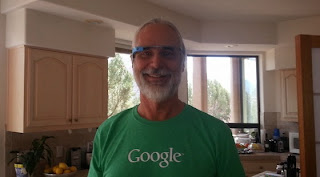Happy Holidays

I want to wish everyone a happy holiday season! Carol and I have been traveling a lot this year and we are staying home this Christmas, hanging out with our friends in Sedona Arizona instead of traveling to see family in California and Rhode Island. I was going to buy a new laptop for my work and writing (my MacBook Air is 3 years old) but in spite of my laptop being dinged up it is otherwise in good shape. I decided to do something radical with it yesterday: When I bought my laptop 3 years ago I initialized it with a Time Machine backup from my older MacBook Pro. Needless to say, there was a lot of cruft on my system. I was also running a developer's preview of Yosemite (with all available updates). Yesterday I reformatted the disk drive and did a fresh install of OS X Yosemite - without restoring anything from Time Machine. I did manually (command line) restore several directories from the latest folder in the Time Machine backups to save the time of not doing fresh git




